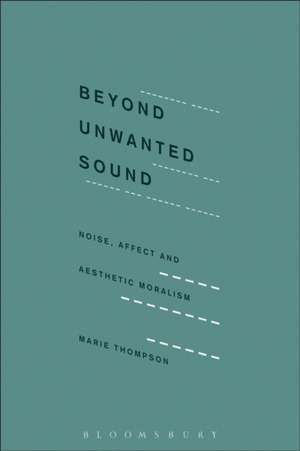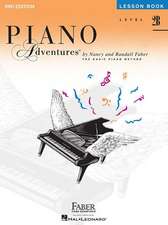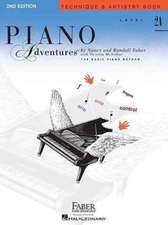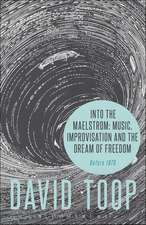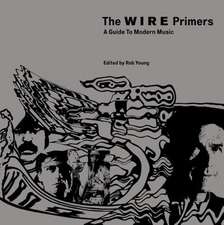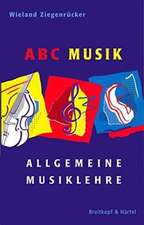Beyond Unwanted Sound: Noise, Affect and Aesthetic Moralism
Autor Marie Thompsonen Limba Engleză Paperback – 8 feb 2017
Toate formatele și edițiile
| Toate formatele și edițiile | Preț | Express |
|---|---|---|
| Paperback (1) | 191.38 lei 6-8 săpt. | |
| Bloomsbury Publishing – 8 feb 2017 | 191.38 lei 6-8 săpt. | |
| Hardback (1) | 831.83 lei 6-8 săpt. | |
| Bloomsbury Publishing – 8 feb 2017 | 831.83 lei 6-8 săpt. |
Preț: 191.38 lei
Preț vechi: 222.08 lei
-14% Nou
Puncte Express: 287
Preț estimativ în valută:
36.63€ • 38.14$ • 30.95£
36.63€ • 38.14$ • 30.95£
Carte tipărită la comandă
Livrare economică 10-24 martie
Preluare comenzi: 021 569.72.76
Specificații
ISBN-13: 9781501313301
ISBN-10: 1501313304
Pagini: 216
Dimensiuni: 152 x 229 x 29 mm
Greutate: 0.34 kg
Ediția:Paperback
Editura: Bloomsbury Publishing
Colecția Bloomsbury Academic
Locul publicării:New York, United States
ISBN-10: 1501313304
Pagini: 216
Dimensiuni: 152 x 229 x 29 mm
Greutate: 0.34 kg
Ediția:Paperback
Editura: Bloomsbury Publishing
Colecția Bloomsbury Academic
Locul publicării:New York, United States
Caracteristici
Makes an original contribution to interdisciplinary scholarship on sound and music
Notă biografică
Marie Thompson is a Lecturer in Media, Sound and Culture at Lincoln School of Film and Media, University of Lincoln, UK. She is the co-editor of Sound, Music, Affect: Theorizing Sonic Experience (Bloomsbury, 2013).
Cuprins
Introduction: Noise - A Useless Concept? Chapter 1: What Noise Has Been: Subject-Oriented and Object-Oriented Definitions Chapter 2: What Does Noise Do?Chapter 3: The Parasite and its Milieu Chapter 4: From Negativity to Affectivity: Thinking of Noise as AffectChapter 5: Acoustic Ecology, Aesthetic Moralism and the Politics of Silence Chapter 6: Exposure, Sensation and the Transgressive Poetics of Noise Music Conclusion: Broadening the Spectrum BibliographyIndex
Recenzii
[Thompson's] overarching narrative is contemporary and relevant with interesting examples ... A thoroughly engaging read.
[An] excellent book. I learnt a lot from reading it, and I think it is the clearest book to date (to my knowledge) that demonstrates the effectiveness of applying affect theory critiques and understandings to sound studies. I would enthusiastically recommend it to anyone wanting to get their head around exactly what is affect theory.
Beyond Unwanted Sound establishes Marie Thompson is one of the most exciting scholars of sound, noise and music. Theoretically adventurous, this book weaves together thinkers as disparate as Michel Serres, Murray Schafer and Claude Shannon, building a strong theoretical edifice for the closely-observed case studies which follow. Thompson's analysis of the creative work of Throbbing Gristle, Christian Marclay, Diamanda Galas and dozens of others make this a rich survey of the ways in which sound, noise and music disrupt situations, assert identities and invite moral judgments.
Marie Thompson shows 'noise' to be essential to any medium or communicative act by deftly mobilising an eclectic set of resources - from Spinoza and Shannon to Diamanda Galàs. Unwanted sound is incisively characterised as relationally, contextually affirmed, rather than as an objectifiable, morally appreciable phenomenon. We are thus urged to heed sound that might tomorrow be heard as new music, as a creatively organised affective force that 'once-was-noise'. Beyond Unwanted Sound is definitely a wanted, and thoroughly needed, contribution to the fast growing field of sound studies.
Go ahead and try not to listen to the provocative and insinuating stylings of this Spinozist noise-merchant! Just be forewarned that Marie Thompson's compelling book will redistribute the capacities of your body and its sensorium in ways that bring crystal clarity to the clamorous. Brilliantly engaging with theories of affect, Thompson shows how noise - stretching beyond annoyance and avoidance - is deeply constitutive in setting the terms of relation, opening up potentials that can often be joyous, even generative. Witness how noise thrives in places - musical and otherwise - where you perhaps least expect it. If there was ever a book that deserved to be turned up to ten (eleven?), it is this one!
[An] excellent book. I learnt a lot from reading it, and I think it is the clearest book to date (to my knowledge) that demonstrates the effectiveness of applying affect theory critiques and understandings to sound studies. I would enthusiastically recommend it to anyone wanting to get their head around exactly what is affect theory.
Beyond Unwanted Sound establishes Marie Thompson is one of the most exciting scholars of sound, noise and music. Theoretically adventurous, this book weaves together thinkers as disparate as Michel Serres, Murray Schafer and Claude Shannon, building a strong theoretical edifice for the closely-observed case studies which follow. Thompson's analysis of the creative work of Throbbing Gristle, Christian Marclay, Diamanda Galas and dozens of others make this a rich survey of the ways in which sound, noise and music disrupt situations, assert identities and invite moral judgments.
Marie Thompson shows 'noise' to be essential to any medium or communicative act by deftly mobilising an eclectic set of resources - from Spinoza and Shannon to Diamanda Galàs. Unwanted sound is incisively characterised as relationally, contextually affirmed, rather than as an objectifiable, morally appreciable phenomenon. We are thus urged to heed sound that might tomorrow be heard as new music, as a creatively organised affective force that 'once-was-noise'. Beyond Unwanted Sound is definitely a wanted, and thoroughly needed, contribution to the fast growing field of sound studies.
Go ahead and try not to listen to the provocative and insinuating stylings of this Spinozist noise-merchant! Just be forewarned that Marie Thompson's compelling book will redistribute the capacities of your body and its sensorium in ways that bring crystal clarity to the clamorous. Brilliantly engaging with theories of affect, Thompson shows how noise - stretching beyond annoyance and avoidance - is deeply constitutive in setting the terms of relation, opening up potentials that can often be joyous, even generative. Witness how noise thrives in places - musical and otherwise - where you perhaps least expect it. If there was ever a book that deserved to be turned up to ten (eleven?), it is this one!
